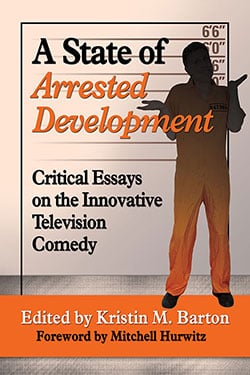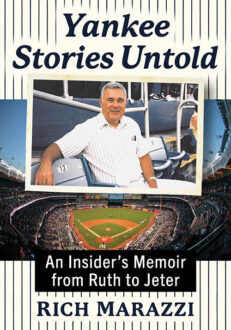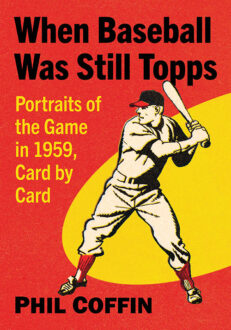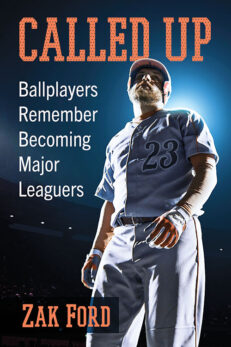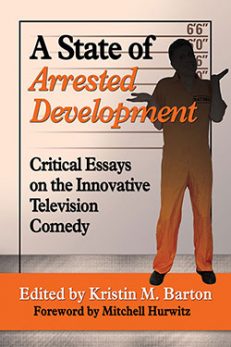A State of Arrested Development
Critical Essays on the Innovative Television Comedy
$29.95
In stock
About the Book
One of the most critically-acclaimed television series of all time, Arrested Development is widely hailed as a cutting-edge comedy that broke the traditional sitcom mold. The winner of six Emmys, the series was canceled by Fox in 2006, only to be revived in 2013 via Netflix’s streaming service. Beyond its innovative approach to storytelling, the series lampooned contemporary American culture, holding up an unflattering mirror to modern society.
This collection of new essays explores how the show addressed issues such as wealth and poverty, race, environmentalism and family relationships. Focusing on the show’s iconic characters, the essays also consider Arrested Development as it stands next to such works of fiction as Hamlet, The Godfather and the writings of Kafka. Also covered is the show’s reinvention of the sitcom genre, and what its revival on Netflix means for the future of television.
About the Author(s)
Bibliographic Details
Edited by Kristin M. Barton
Format: softcover (6 x 9)
Pages: 256
Bibliographic Info: appendix, bibliographies, index
Copyright Date: 2015
pISBN: 978-0-7864-7991-7
eISBN: 978-1-4766-1938-5
Imprint: McFarland
Table of Contents
Table of Contents
Acknowledgments vi
Foreword: A Prebuttal (Mitchell Hurwitz) 1
Introduction (Kristin M. Barton) 5
Section 1: Life in Newport Beach
Living in Sudden Valley: The Bluth Family and the Fault Lines of Ideology (Edwin Demper) 9
The Meaning of Charity: Depictions of Corruption and Altruism (Kristin M. Distel) 23
Lindsay Bluth and the Politics of Sincerity: Environmental Rhetoric, Eco-Consciousness and Social Performance (Elizabeth Lowry) 37
It Ain’t Easy Being Race-Sensitive: Things Whitey and African-Americany Aren’t Ready to Hear (James Rocha) 53
The Ways of the Secular Flesh: Destabilizing the Heteronormative and Negotiating Non-Monolithic Sexualities (Navid Sabet) 68
Section 2: Deconstructing the Bluths
“I’m a monster!”: The Monstrous and the Comedic (Jonah Ford) 87
Narrative and the Narrator in the Politics of Memory (Dustin Freeley) 105
Families with Low Self-Esteem: The Fünke Dynamic (Bethany Yates Poston and Crisman Richards) 120
“Obviously this blue part here is the land”: The Bluths, Decadence and Logic Adrift (Joseph S. Walker) 134
Section 3: Comparative Developments
Hamlet’s Ghost Meme: Accidental Shakespeare, Repetition Compulsion and Roofie Circles (Kristin N. Denslow) 149
The Family Business: Bluths, Corleones and the American Dream (Kristin M. Barton) 163
The Kafkaesque in the Trial of George Bluth (Matthew Gannon) 180
Section 4: It’s Not TV. It’s Arrested Development.
“I swore I’d not go reality”: The Bluths Through the Lens of Genre (Patrick Alasdair Gill) 197
Saving Our Bluths: Why the Smartest Comedy on Television Struggled to Find an Audience (Kristin M. Barton) 211
“Chalk one up for the Internet: It has killed Arrested Development”: The Series’ Revival, Binge Watching and Fan/Critic Antagonism (Michael Graves) 224
Appendix: Episode Guide 237
About the Contributors 239
Index 243
Book Reviews & Awards
“compelling pieces from scholars of communication, literature, philosophy, theology, composition and rhetoric, among other disciplines…a welcome and distinguished contribution to the expanding field of television studies”—Journal of American Culture.

